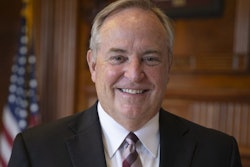HARRISBURG, Pa.
State university professor Dr. Rita Drapkin considers herself a married woman, even though Pennsylvania doesn’t sanction same-sex marriage.
Indiana University of Pennsylvania provides health insurance only to Drapkin, who is assistant director of the school’s counseling center, but not to her lesbian partner of 28 years.
While Drapkin contributes almost $400 a year from her paycheck toward her own health plan, her partner, Cindy Klink, a freelance concert producer, is covered by private health insurance that costs roughly $3,600 and only covers catastrophic illness.
“It’s been incredibly frustrating,” says Drapkin, 54, a tenured professor at the school in western Pennsylvania.
As more colleges and universities nationwide extend health care benefits to same-sex partners, the faculty union that represents 5,500 professors at Pennsylvania’s 14 state-owned universities is still waiting for them — even though a contract ratified more than a year ago opened the door to same-sex benefits.
That’s because the pact doesn’t require the State System of Higher Education to provide same-sex benefits unless the state extends similar “domestic partner” benefits to other unionized state workers.
The Pennsylvania Employees Benefit Trust Fund, which oversees state workers’ health care benefits, voted July 21 to study the possibility of offering them to same-sex couples and unmarried heterosexual couples who live together. There is no deadline for completing the study, however.
The vote was prompted partly by persistent lobbying on the part of the Association of Pennsylvania College and University Faculties, the state system’s faculty union, says trust fund board member Joan Bruce, president of Service Employees International Union Local 668.
“I was actually very surprised to find out that their contract was tied to the employee-benefits trust fund, where they have no seat,” Bruce says.
Linking state university faculty same-sex benefits to benefits for other state workers was a key compromise that enabled both sides to reach a tentative settlement in February 2004.
During negotiations, the university system’s administration said it wasn’t feasible to offer same-sex benefits, citing budget constraints. Consultants to the administration estimated at the time the benefits would cost an additional $600,000 to $1.2 million a year, system spokesman Tom Gluck says.
“Because our fiscal situation overall was a very challenging one, and health care costs in particular … to expand benefits in any way to more people for more services, this was not the time to do that,” Gluck says.
Nearly 300 colleges and universities nationwide provide some form of domestic-partner benefits, including 23 in Pennsylvania, according to Washington, D.C.-based Human Rights Campaign, the nation’s largest gay rights advocacy group. They include Pennsylvania State University, Temple University and the University of Pittsburgh, which receive state funding but are not state-owned.
The state system’s faculty union is concerned that not offering same-sex benefits puts the universities at a competitive disadvantage, union president Patricia Heilman says.
“The pressure is even more intense for us to obtain domestic-partner benefits, because we actually compete with Pitt, Penn State and Temple for faculty,” Heilman says.
— Associated Press
© Copyright 2005 by DiverseEducation.com















